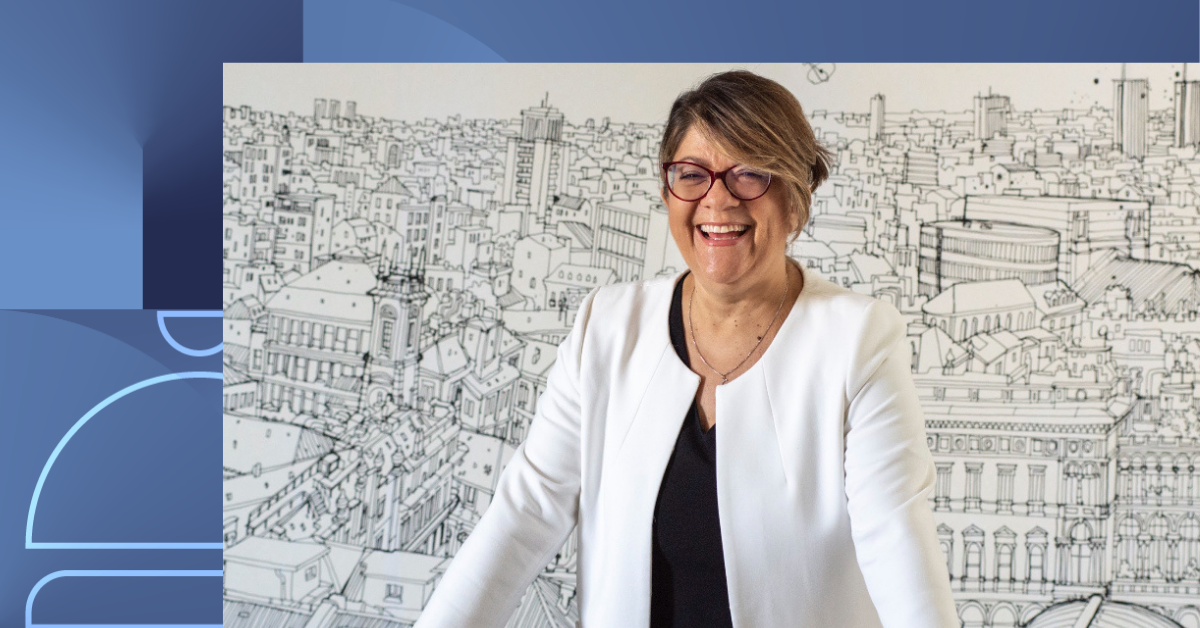
With this interview, we are anticipating one of the topics that we will be discussing at BTO in the section dedicated to hospitality: The difficulties of reaching a balance between innovation and consolidated practices, between fashions and actual utility, and between costs and benefits related to realities of different dimensions.
Giovanna Manzi, a very well-known and esteemed figure in the world of Italian hospitality, was the 2013 winner of the Manager of the Year Award assigned by Manageritalia and nominated by TTG Italia in 2021 for Personality of the Year in Tourism.
1) For the second consecutive year in BTO, we are talking about AI. In the first year, we observed how AI is present in hotel management operations. This year, we should start evaluating its usefulness, efficiency, and effectiveness. What do you think about it?
After the initial enthusiasm that captivated us all, I believe that the year has passed, realising that introducing systems that use AI is not, in itself, difficult, but sometimes it implies costs, sometimes a rethinking of processes and flows and, last but not least, an update of software infrastructures. A leap forward in technological solutions that have always been on the market but that can guarantee greater security.
I am obviously thinking of the Cloud; how many hotels still have the in-house server-based PMS? Or Copilot, which requires licenses and which, in an initial phase, was intended only for large companies with 300 licenses or more. Then, as always, people get equipped and start reading and the smartest ones have started using applications to increase personal efficiency, so presentations, translations, posts on social media, image creation and searches, summaries, meeting minutes, cross-checks of multiple files. In short, these are not big changes but things that can improve your life and make a process more efficient, saving a little.
However, this kind of use does not mean being an expert or having a company that has completely digitalized using AI; to make a comparison, it only corresponds to replacing the calculator with first-rate Excel. Now, the step is to change companies to design architectures based on AI, perhaps not in all processes but certainly selecting those where it makes sense and is functional. We must move to the “pivot tables” phase, continuing to use the Excel metaphor, and no longer just the “vertical search“.
2) What does the term “balance” mean to you?
Balancing a phenomenon for me means using critical lenses to analyse it, deciding where and how to use it in accordance with my mission and vision of the company. Today, technology is certainly an enabler, but going too far in one direction (for example, if I have a hotel positioned in the luxury segment) could be counterproductive. Designing a customer Journey consistent with my positioning and understanding of where to insert elements and applications that use AI. I can also see that, for my company, in the customer experience, we do not need this part, while, perhaps, it is more useful in the back office: for example, use for semi-finished products that I then customise based on the particular situations. In fact, I find it much easier to correct/add than to be faced with a blank sheet of paper. For example, regarding the responses to customer comments, I think that excessive standardisation is a mistake whereas taking a base and modifying it – customising it – is certainly more effective and saves me time.
3) In your opinion, does the level of digitalization of hospitality businesses keep pace with that of guests?
On average, no. It would be like saying that a grandmother travels at the same speed as her grandson. Companies, not only accommodation facilities, the bigger they are, the more waste and difficulty they have in adopting change. This is not true for all of them, obviously, there are always trendsetters, but there are followers who make up the majority and who struggle to implement digitalization and innovation projects. In any case, everything always starts from the top: if you have a CEO, an entrepreneur who believes in it, you can be big or small but digital transformation will certainly arrive. If, on the other hand, innovation comes from the bottom but the top doesn’t see its usefulness, I would say the effort is triple.
This applies to tourism but also to other industries.
At BTO, we will address this issue, which is cultural before technological and which I believe to be crucial. In the Panel that I am preparing, there will be four leaders of hospitality companies that are using or will soon be using AI-based technologies, situations in which the impulse for change came from them.
4) Give me 3 words or adjectives that summarise your vision of AI.
I don’t want to belittle, so I will use a euphemism, but I believe that AI today is like a common practice that everyone talks about but few practice successfully, a bit like Padel or other examples that each one of us has in mind.
So, if I had to summarise, I would say that AI must be transparent for the guest, evident for the collaborators and safe for the entrepreneur.
The interview was conducted by Nicola Zoppi, coordinator of the “Hospitality” topic.
We look forward to seeing you in Florence on November 27 and 28, 2024.
